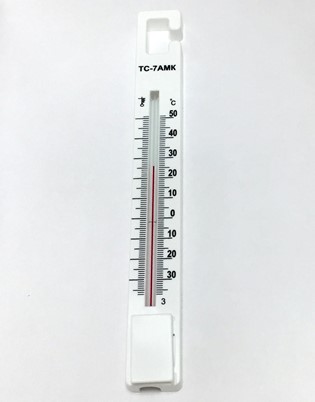Lawyers warn of a double threat to Russian banks due to US requests
Russian banks may face the threat of account blocking, loss of liquidity, bankruptcy, revocation of licenses and violations of banking and state secrets due to new US legislation aimed at combating money laundering and terrorist financing. Such risks are listed in the conclusion of the employees of the Faculty of Law of Moscow State University Elizaveta Lauts and Sergey Glandin, prepared by order of the Association of Banks of RUSSIA (available from RBC).
What is the law
In the United States, the 2021 National Defense Appropriations Act went into effect in January 2021. As part of it, amendments were adopted to the law “On Combating Money Laundering and the Financing of Terrorism”, which give the US authorities the right to request information from foreign banks that have correspondent accounts with American credit institutions. Such data includes information about accounts if they are the subject of a criminal investigation in the United States, the subject of anti-money laundering proceedings in the United States, and also if the account is subject to forfeiture of funds in favor of the United States.
As stated in the opinion, if a Russian bank does not comply with the requirements of US law, then the US Treasury Secretary or the Attorney General can fine it $50,000 for each day of non-compliance with the request. The US bank will then be required to terminate any correspondent relationship with the Russian bank no later than ten business days after the date on which the financial institution receives written notice that the Russian bank has failed to comply with the order.
What risks did lawyers see
Receiving a request from US government agencies and further work with them may entail various risks for Russian banks - from legal and reputational to the risk of loss of liquidity. The latter, according to the authors of the opinion, may occur as a result of the “blocking” of correspondent accounts in American banks or the outflow of foreign trade clients. In turn, the "blocking" of correspondent accounts in the US makes it impossible for banks to make any cross-border payments in US dollars (both in the interests of customers and for the bank's own operations). This carries the risk of non-fulfillment of monetary obligations to customers and the emergence of bank liability for this. Technically, Russian legislation in these cases even provides for the possibility of reorganization, bankruptcy or license revocation, the conclusion says. However, according to lawyers, this risk is not high for large banks, as well as banks, in the structure of operations of which the volume of payments in US dollars is not significant. The US demands run counter to Russian banking, trade and government secrecy laws, which do not include the US Treasury Secretary or the US Attorney General as eligible to receive it. Due to the violation of banking secrecy, there is a high probability of taking measures by the Central Bank, including a fine of up to 0.1% of the minimum authorized capital. “The greatest risk associated with the disclosure of state secrets affects information related to the state defense order,” the authors of the opinion note. This issue provides for criminal punishment with imprisonment. The US law also runs counter to Russian legislation on personal data. Violation of it entails fines, and “there is a potential risk of criminal prosecution of bank employees for disclosing personal data of customers at the request of US authorities.”Banks will be required to report to financial intelligence about requests from "unfriendly countries"
"Great threat" or isolated cases
The Association of Banks of Russia fully shares the identified risks and sees them as a "huge threat," Anatoly Kozlachkov, vice president of the association, told RBC. According to him, a representative of the Foreign Ministry was present at the discussion of these risks at the association site, who stressed that this threat could be realized at any moment, since relations between Russia and the United States are still very unstable.
Sergey Glandin, the author of the opinion and special adviser on sanctions law at the Pen&Paper Bar Association, noted that the American law is more likely directed at CHINA , and not at Russia. The US is concerned about financing the DPRK through Chinese banks in circumvention of US sanctions, which is why such a law was passed, he explained. According to Glandin, theoretically, these demands can also be sent to Russia: “But even with regard to Chinese banks, as COURT practice shows, requests from the United States were sent no more than four times a year, three of which remained unanswered. In relation to Russia, this figure may be even less.”
Now the main problem is that if a Russian bank responds to the US request, it will also violate Russian law, for which it is subject to punishment up to criminal liability. Otherwise, US requirements will be violated, which also entails fines or disconnections from the American credit institution, Glandin is concerned.
How they solve the problem
The government has already submitted a draft law to the State Duma prohibiting Russian banks from providing data on clients and their transactions to foreign countries. It is precisely designed to minimize the risks "associated with the adoption by hostile states of changes to national legislative acts aimed at obtaining from foreign banks, under the threat of penalties, confidential information constituting banking secrecy." In addition, the authorities want banks to report such requests to Rosfinmonitoring.
The government decided to ban the sharing of banking secrecy with foreigners Politics
Today, there is no unequivocal solution to stop the risks of the American law, says Kozlachkov: “The banks recognized the proposed decision of the government as ineffective in reducing these risks.”
The only way out of the situation is for the Russian authorities to adopt a mirror law regarding American banks, Glandin believes: in this case, the US authorities themselves will offer to cancel these requirements from both sides, sign an international agreement and continue cooperation. ASROS will continue to discuss possible ways out of the situation together with the banking community and regulators, Kozlachkov assured.
RBC sent a request to the Central Bank, the Ministry of Finance, the Ministry of Foreign Affairs and the largest banks. A representative of Rosbank, which is part of the French group Societe Generale, said that the risks could not be stopped without support from the state. He added that there may be “risks of including Russian banks that refused to provide information to US government agencies in negative lists, which, in turn, will cut off the bank not only from payments in US dollars, but also significantly complicate or make it impossible to cooperate with European banks. ".
“In general, banks will find themselves between two fires. On the one hand, the risks of sanctions from the United States, on the other hand, the risk of violating the provisions of Russian legislation, ”summarizes Rosbank.




























































